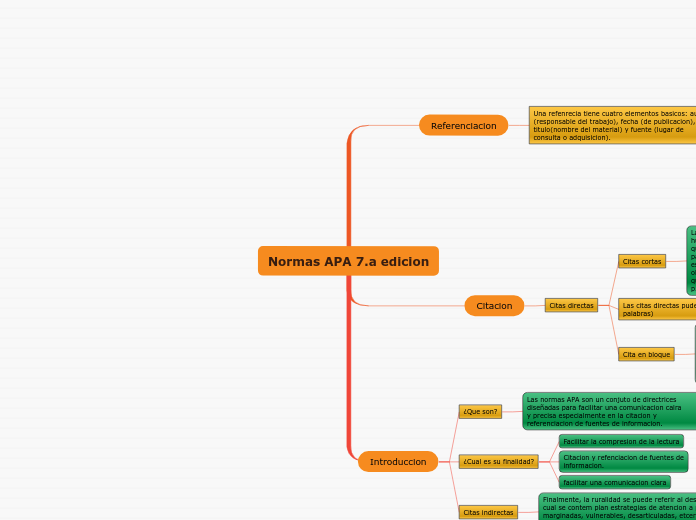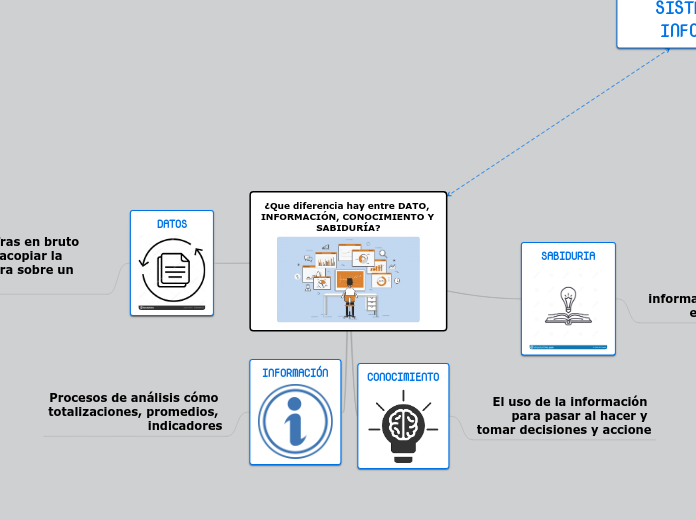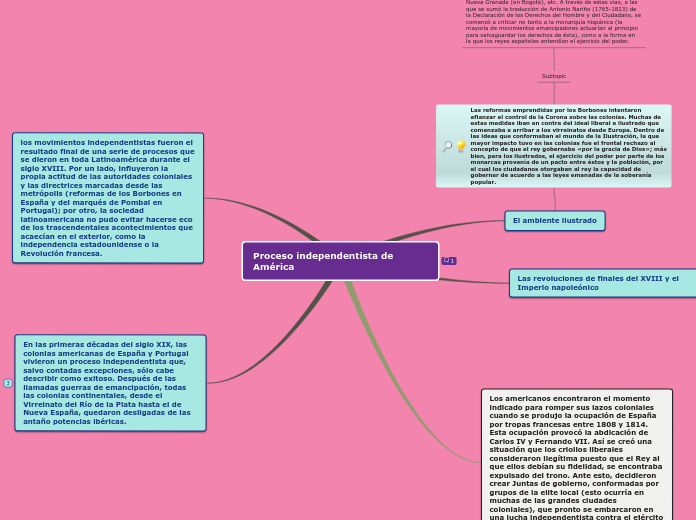Normas APA 7.a edicion
To name your story, you have to think about the overall message and what you want your audience to understand from the story. Also, make it relevant and easy to remember.
Introduccion
In the beginning of the story (or the exposition), you will need to introduce the setting and characters. You might also want to introduce the main conflict. This part of the story is important because it gives the reader necessary background information and maybe even a first insight into a character’s personality.
Citas indirectas
There wouldn't be any tension and excitement in your story if there weren't any obstacles in your character's way.
Finalmente, la ruralidad se puede referir al desarrollo rural, en el cual se contem plan estrategias de atencion a poblaciones marginadas, vulnerables, desarticuladas, etcera (Dirven et al., 2011).
A story is nothing more than a character overcoming a series of difficulties to reach the desired goal. Obstacles usually create suspense and conflict. In overcoming obstacles, there is growth: weak becomes strong; hatred turns into love; sadness into happiness; wrong into right; lies into truth; or evil becomes good.
See a few examples below:
- stopping a meteor
- finding a killer
- finding love
¿Cual es su finalidad?
The setting (time & place) of a story can change throughout the plot.
facilitar una comunicacion clara
Sensory details include sight, sound, touch, smell, and taste. These details are important because they create depth in your setting.
See a few examples below:
- the smell of fresh bread
- the scent of freshly cut grass
- rain falling onto the windshield etc.
Citacion y refenciacion de fuentes de
informacion.
The weather is an important element in your story because it can highly influence the ambiance and the mood of the characters.
Facilitar la compresion de la lectura
The time of the story can also change. It can describe the event of a single day or can include an entire year's plot. Anyway, don't forget to mention it.
¿Que son?
Characters are essential to a good story. Usually, the protagonist(s) is/are the most affected by the plot. Introduce a character by focusing on their actions, interests, and occupation, as the physical appearance doesn't make a difference in most cases.
Las normas APA son un conjuto de directrices
diseñadas para facilitar una comunicacion calra
y precisa especialmente en la citacion y referenciacion de fuentes de informacion.
Type in the name of your character.
Citacion
The middle of the story is where you add layers of complications that will lead to the end. Reveal more about the character's journey. Did their personality go through changes? How did they overcome the challenges? And as you build up the story’s central conflict, make it more personal to that character. Also, from the middle act, you have to lead into the final act.
Citas directas
Each story has a main character and that character usually needs to solve a problem or challenge. The character's challenge is the one that creates tension throughout the story.
Cita en bloque
Type in any other challenges which other characters in the story need to face.
Juridicamente estaba justificado el asalto a las tierras de los indios.Entre el año de 1750 y el de 1800, epoca en que las comunidades indigenas del oriente colombiano fueron objeto de una politica de agregacion-segregacion de tierras, el monto de las ventas de unos 68 resguardos fue de 110 308 pesos aproximadamente. (tovar, 1986,p. 23)
Las citas directas puden ser cortas (hasta 40 palabras)
Citas cortas
In most stories, there are 3 challenges. The number 3 is a mystical number symbolizing completeness. Try to come up with interesting challenges with which your character needs to struggle.
See a few examples below:
- turns into a werewolf at night
- is sent back in time
La ira es considerada como una simple reaccion humana, y el pecado de la ira depende del grado en que se manifieste: "Caundo el movimiento instintivo pasional de la ira se despierta, nos ciega, nos estupidiza y nos convierte en una especie de bestias obcecadas. Ese exceso es perjudical, pero yocreo que un punto de colera es necesario" (Savater, 2005, p.81).
Referenciacion
The ending of a story is essential. We all know that if the ending is weak, what happened before loses its importance. So make it unpredictable, but fair. A resolved ending answers all the questions and ties up any loose threads from the plot.
Una refenrecia tiene cuatro elementos basicos: autor (responsable del trabajo), fecha (de publicacion), titulo(nombre del material) y fuente (lugar de consulta o adquisicion).
This is the moment when the main character surpasses the last obstacle and finally faces their greatest challenge.
The climax usually follows one of these patterns:
- realization
- resolution
- choice
Type in your answer.
Paginas web
Rodriguez,M.(2020,27 de junio). Joseph Schumpeter, el hombre que predijo el fin del capitalismo y que es clave para entender la economia de hoy. BBC MUNDO.
https://www.bbc.com/mundo/noticias-53102444
Tesis
Barreto, A.G.(2015).Fundarvid:una contextualizacion de sus neologismos en la lengua de señas colombiana [tesis de maestria, Universidad
Nacional de Colombia]. Repositorio institucional un.
http://bdigital.unal.edu.co/51542/
Libros y obras de referencia
Berrio,P.A.(2018). La muerte de Andres Valdivia, Primer Gobernador de Antloquia, 1569-1575. instituto Colombiano de Antropologia e Historia.
Publicaciones periodisticas
Osorio-Delgado, M.A.,Henao-Tamayo, L.J., Velasquez-Cock, J.A.,Cañas-Gutoerrez, A.I., Restreno-Munera, L.M., Gañan-Rojo, p.f., Zuluaga-Gallego, R.O., Ortiz-Trujillo, IC. G Castro-Herazo, C.I. (2017). Aplicaciones biomedicas de biomateriales polimerica. DYNA, 84(201),241.252.
http://dx.doi.org/10.15446/dyna.v84n201.60466










